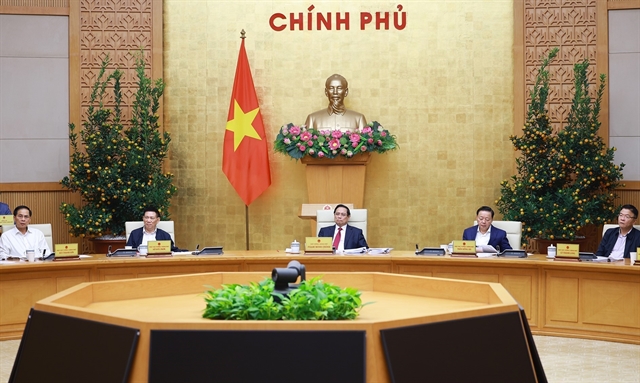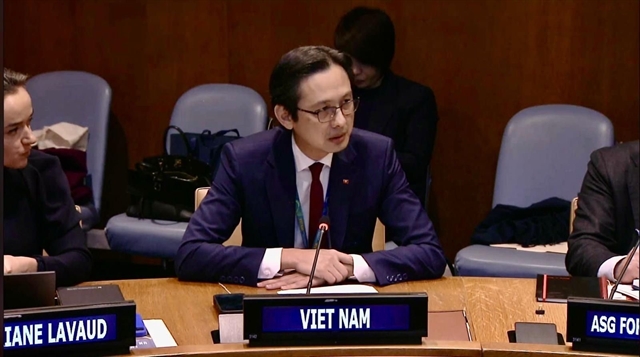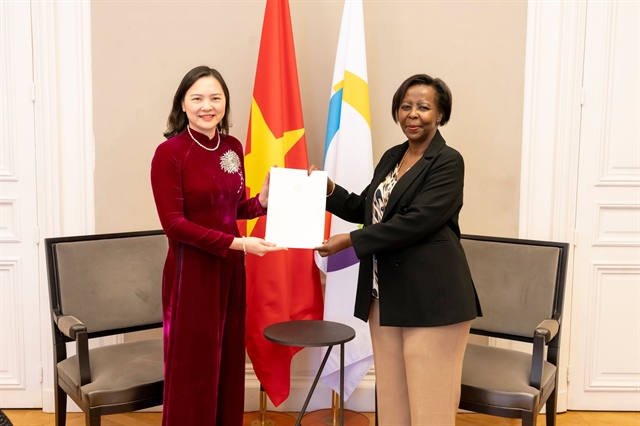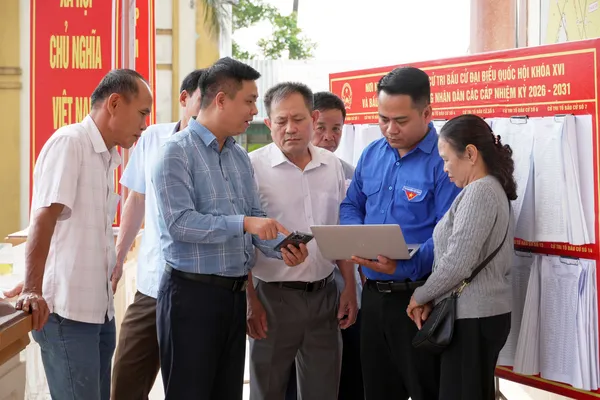 Politics & Law
Politics & Law


|
| Deputy Minister of Industry and Trade Trần Quốc Khánh |
Deputy Minister of Industry and Trade Trần Quốc Khánh talks to Vietnam News Agency on the role of the High-Level Task Force on ASEAN Economic Integration.
What was the significance of the 37th 'High-level Task Force on ASEAN Economic Integration (HLTF-EI)' meeting which was held in Hà Nội on February 12 and 13?
The event drew the participation of senior economic officials from deputy minister level from all ASEAN member states. High on the agenda was the discussion on what should be written in the recommendations and strategies in the economic integration vision for ASEAN.
Participants spent a lot of time discussing co-operation among ASEAN member countries and between ASEAN and other international economic groups. In the discussion on economic co-operation among ASEAN member states, we spent quite a lot of time evaluating the master plan on the course of the establishment of the ASEAN Economic Community by 2025.
Regarding external economic co-operation, participants focused their discussion on two points.
First, the criteria to select counterparts to negotiate with ASEAN member countries.
Second, a special group would be created to review the negotiation process for the Regional Comprehensive Economic Program (RECEP), an important move for the coming negotiation sessions in 2020.
Did you face any challenges in holding the meeting in Hà Nội?
The outbreak of COVID-19 has affected the ASEAN economy, including the Vietnamese economy. Adding to that, the representative delegation from Singapore, who is the incumbent of the President of the group, could not attend the Hà Nội meeting due to the outbreak of the coronavirus.
However, Việt Nam has done its best to co-chair the video meeting with the Singaporean side. And the meeting took place smoothly.
Việt Nam played a very important role in the 37th of the HLTA-EI meeting. Adding to that Việt Nam shared its experience with other ASEAN member countries to help them look for a better way to negotiate their free trade agreements in the future. Việt Nam also shared with other member nations the lessons the country learned in the course of negotiating for the Regional Comprehensive Economic Programme (RCEP).
Do you think the RCEP will be signed in 2020?
At the year-end meeting in 2019 in Bangkok, all ASEAN member states adopted a joint statement voicing their commitment to open their market as was regulated in the agreement.
However, India is still facing some problems in discussions about the RCEP. Yet all 15 countries have agreed to open their markets for other signatories to the agreement.
We have set a target to have the RCEP agreement completed by late this year in Việt Nam.
Though we have foreseen that the negotiations with India still face certain challenges, we vow to do our best to have them completed by late this year.
What do you think about the impacts of the Europe-Việt Nam Free Trade Agreement (EVFTA) and the Europe – Việt Nam Investment Protection Agreement (EVIPA) on ASEAN?
The approval of both the EVFTA and the AVIPA by the European Parliament was the good news for both Việt Nam and other ASEAN member states. Việt Nam and Singapore are the two countries in ASEAN that have signed free trade agreements with the EU.
We hope in the near future, more free trade agreements will be signed between the EU and the remaining eight ASEAN member states.
All ASEAN members have expressed their willingness to have an agreement between the two blocs – the EU and ASEAN.
We hope with lessons learned from the trade deals signed between Việt Nam and Singapore with the EU, an agreement between the EU and ASEAN will soon be concluded. — VNS




